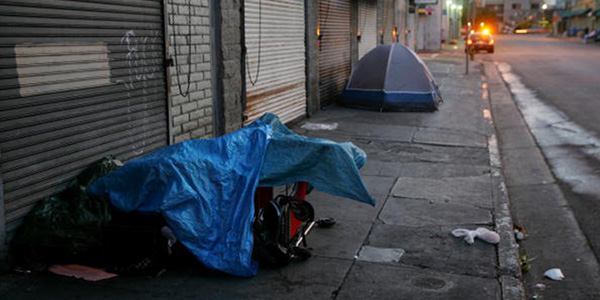Intolerance and harsh judgments always create a sense of division, separation and exclusiveness. Those who cannot conform to the confines of acceptability often find what it is to experience exclusion. The addict, prisoner, foreign-national, homeless, and many more know painfully what it is to be left out and cast aside often to a sub-culture of silence and fear.
Pope Francis, who recently spoke to bishops across world challenged them to be, “shepherds who smell like their sheep”. His humble and compassionate leadership is in contrast to a clerical culture that so often placed rank, title and office in front of its call to service.
Victor Hugo was walking to work on a cold morning in February 1846 when he saw a malnourished man arrested for stealing a loaf. He was so distressed by this scene that the memory of it lingered, mutated, and agitated itself into the pages of his next novel, one of the most beloved stories ever told. In Les Misérables he distills that scene in sparse prose and wraps it around the life of Jean Valjean:
A very hard winter came. Jean had no work. The family had no bread. No bread and seven children! The baker arrived in time to see an arm passed through a hole made by a blow from a fist, through the grating and the glass. The arm seized a loaf of bread and carried it off.
As most readers will know, for this crime Valjean is sentenced to five years of hard labour, and the fulfillment of that punishment is what drives the plot forward over 1,500 pages.
Hugo intended to rouse the society in which he lived to the injustices they ignored. The architectural description of bakeries is accurate — they were protected by metal railings because in times of hunger, desperate mobs tended to attack the businesses where food could be found. Back then, the forces of the state disregarded natural justice and sided with the powers-that-be, protecting the property-holding classes even if that sustained a mountain of human misery that reached up to the heavens.
Thankfully, our politics have progressed since then.
The moral simplicity of the housing crisis
The Jesuit Centre for Faith and Justice has been writing, researching, and lobbying about the present property crisis since its embryonic stage in the aftermath of the 2008 crash. In 2009, the Centre published a report on the dysfunctional housing system, which clearly articulated how the shift to viewing property as a commodity over a common good would lead to social disaster.
The Working Notes dedicated to analysing the present government plan demonstrated conclusively how it was both morally and politically bankrupt.
Of course, all this time and for decades before the Centre even came into being, Peter McVerry has been battling the systemic injustice around housing in Ireland. It can be depressing work. The public discourse machine churns on, month-by-month, now trumpeting some apparent statistical improvement in the situation, then zeroing-in on some family who find themselves overnight in a Garda station, later lamenting when someone dies of exposure, as if that death came upon us like a rainstorm, out of our control, a tragic natural consequence of living in a fallen world.
Contrary to what many argue, while the details of policy will be complicated, the solution to this crisis is simple. Housing is an essential human need and a common good. It is part of the business of government to provide housing.
Homelessness is aggravated by various factors including drug dependency or abusive relationships, but it is fundamentally caused by a lack of money. People are homeless because they do not have money for rent. Rents are high because the government has evacuated itself from its role in providing housing.
The homeless person is without a home not because they are a ne’er do well. They are just like you, but they cannot afford a home.
Humans need shelter. Families need homes. Since our society can provide housing for everyone, it is our collective responsibility to house everyone.
Prayer for the Homeless
Hear our prayer today for all women and men, boys and girls who are homeless this day.
For those sleeping under bridges, on park benches, in doorways or bus stations.
For those who can only find shelter for the night but must wander in the daytime.
For families broken because they could not afford to pay the rent.
For those who have no relatives or friends who can take them in.
For those who have no place to keep possessions that remind them who they are.
For those who are afraid and hopeless.
For those who have been betrayed by our social safety net.
For all these people, we pray that you will provide shelter, security and hope.
We pray for those of us with warm houses and comfortable beds that we not be lulled into complacency and forgetfulness.
Jesus, help us to see your face in the eyes of every homeless person we meet so that we may be empowered through word and deed, and through the political means we have, to bring justice and peace to those who are homeless. Amen
SEE ALSO – Fr Paddy: Grandparents are a family’s greatest treasure, their strong foundation


























